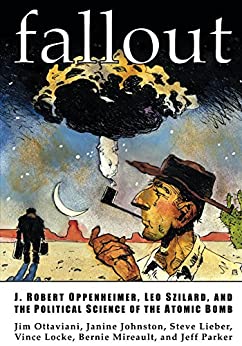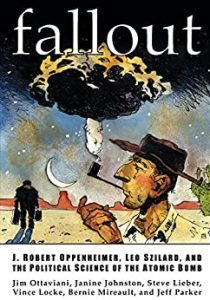
Synopsis
The story of how mathematicians and physicists got together and built the most powerful weapon ever known is endlessly fascinating. This book looks at the life of Oppenheimer, who tried to direct and corral the scientists and military advisers and somehow managed to move the project forward in spite of personality conflicts and conflicting ideologies. I already knew much of this story, but not the latter part of the book, which concerns Oppenheimer's trial under McCarthyism and his subsequent loss of a post with the Atomic Energy Commission because he had been part of a group with communist connections when he was a young student. A lot of good stuff in here about how scientists and the government interact.
Why should I read this book?
While there are many books that cover the creation of the atomic bomb, Leo Szilard is not a name that is often brought up during this era. Fallout brings a fresh take on the story of the bomb by focusing more on the ethical implications of the invention. Students excited about the pure destructive power and the leaps and bounds of research occurring during this time might find a sobering second look to ground themselves in the implications of the discovery.
Who is this book best for?
Good for high school students. There's quite a lot going on in the book and the political nuances can lead to some rich discussions with more mature students about policies and advocacy even in the academic or business settings.
Challenge Rating: No Challenge
Heads up: Buying via our links may result in us getting a commission. Also, we take your privacy rights seriously. Head here to learn more.

